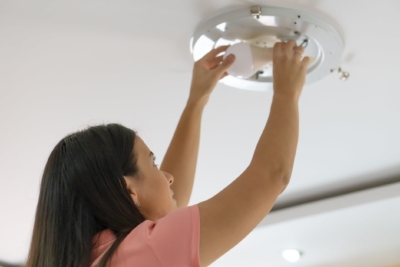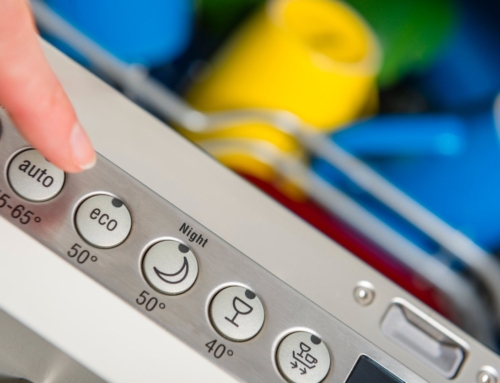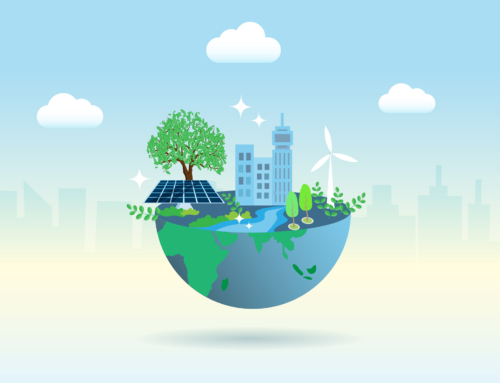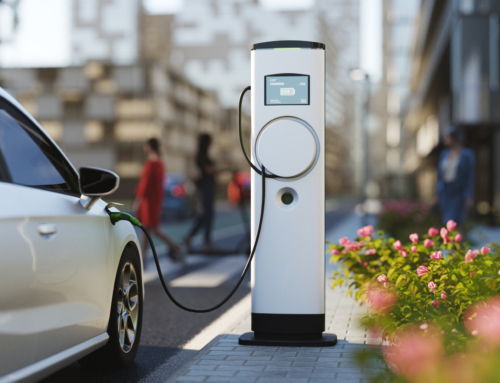With summer comes increased energy costs—which hasn’t changed this year. But there are plenty of ways to keep energy usage down this summer.
How Is the Price of Electricity Determined?
Among other factors, the cost of electricity is determined by how much it takes different companies to provide energy. Technically the price of electricity changes every minute. That’s why you may hear about “off-peak hours,” when there isn’t as much demand for energy, and it can cost less.

Companies pay a wholesale price that changes seasonally. That’s why electricity costs tend to increase more in certain seasons. When electricity demand is higher, energy supply costs go up.
Why Are Energy Costs Rising?
The price of energy is determined by different factors like building, maintaining, and operating different energy systems. These prices can rise and fall depending on access to fuel, the time of year, and different regulations within each state.
Increased energy prices aren’t just happening in the U.S. but worldwide.
There are just a few reasons the price of energy is rising:
- Climate change: America’s electricity sources must be repaired or fortified for extreme weather.
- General disruptions: There have been a lot of disruptions in the energy industry, ranging from current events to supply issues.
This Won’t Last Forever
While the situation seems dire, it’s important to remember that it won’t last forever. Our country is already bouncing back from the events of the last few years.
Many discussions are happening about strengthening the country’s electricity grid to withstand extreme weather within the next few years. Experts also estimate that more renewable energy systems will be installed in the near future to help balance out climate change and strain on different grids.
How to Conserve Energy During the Summer
Just changing a few daily habits can cut down on energy consumption.

Clean AC Filters
You’d be surprised how regularly cleaning your AC can help conserve energy. Cleaning your AC filter can reduce the energy your AC uses by 5 to 15%.
Use Fans More
While they may take a little longer to cool things down, fans are a great way to stay cool while saving energy at the same time.
Use fans even while running the AC. It will spread the cold throughout your home faster.
Close Curtains and Blinds
We all love looking out the window and seeing beautiful weather, but doing this can cause you to use more energy. When your curtains are open, sunlight is coming directly into the room, making the temperature rise.
When the sun directly faces your home, shut all curtains and blinds to make rooms stay cooler.
You can still open your curtains when the sun is facing the other direction, so you don’t feel completely cut off from the world.
Wash Clothes in Cold Water
Around 90% of the energy used in washing clothes goes to heat up water. Washing your clothes in cold water will save a lot of energy.
Hang Clothes Out to Dry
Skip the dryer and hang your clothes outside to dry them. Take advantage of the high heat.
Use Energy-Efficient Light Bulbs
If you haven’t already, you should replace your light bulbs with energy-efficient ones. LED light bulbs are great because they use 75% less energy and can last 25 times longer than a traditional bulb.
Unplug Devices You’re Not Using
Did you know that devices not in use still take energy? It may be a small amount, but if you have a bunch of devices plugged in, that’s wasted energy.
Turn Off Lights in Rooms You Aren’t In
This may seem obvious, but people’s worst habit is not turning off lights when they leave the room. Imagine how much energy you can save by actively thinking about whether you turned off your lights or not.
Take Shorter Showers
We all love taking a long shower after a hard day, but it won’t help you save energy. Start taking shorter showers and save time and energy.
Turn Up the Temperature a Few Degrees
While staying cool is the goal, turning the thermostat up a few degrees can help you save energy. Find a comfortable temperature, and only cool the house to that point. Every degree your air conditioner doesn’t have to cool your house saves energy.
Close Doors to Rooms Not Being Used When the AC Is On
Similar to lights, people tend not to close doors to rooms they aren’t using while the AC is on. That just wastes energy because you’re cooling a room you aren’t even in!
Energy Saving Products
You’ve learned how to keep energy costs down in the summer; now partner that with some energy-saving products!
- Smart thermostats: An upgrade from the standard thermostat, this can help you better control the temperature in your home.
- Home energy monitors: This will show you how much energy you use and where.
- Low flow shower heads: Reduce the amount of water that comes out to save energy.
- Smart plugs: Help you get more control over the devices you have plugged in. They can let you turn the lights off from another room.
- Curtains/Blinds: Closing blinds or curtains will help reduce heat from sunlight. Don’t forget to open the blinds during the morning to enjoy natural sunlight!
- Motion sensor switches: You don’t have to worry about leaving lights on with motion sensor switches. When you enter or leave a room, they’ll turn on or off automatically. Just make sure to use them in rooms where people aren’t going in and out a lot.
Spring Power & Gas Is Here For You
The energy price increase is a temporary issue. Plus, there are small ways you can conserve energy without disrupting your daily life.
Contact us with any questions about renewable energy or additional concerns regarding the increased energy costs! An expert will speak with you and answer all your needs.




![Top 11 Sustainable Building Practices for Eco-Homes [Plus 5 Sustainable Materials]](https://springpowerandgas.us/wp-content/uploads/2023/02/iStock-181062267-500x383.jpg)

